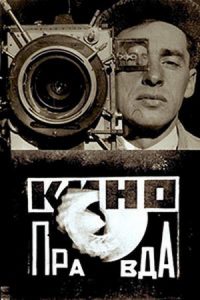Kino Pravda
Release date: June 01, 1922
Directed by: Dziga Vertov
Stars: Dziga Vertov, Elizaveta Svilova, and Mikhail Kaufman
Running time: 372 minutes
Country: The Russian Empire
Language: Silent
“Kino-Pravda” refers to a series of documentary films directed by the pioneering Soviet filmmaker Dziga Vertov. The term “Kino-Pravda” translates to “Film Truth” in English. These films were produced between 1922 and 1925 and are considered a significant contribution to the development of documentary filmmaking.
Dziga Vertov, along with his brother Mikhail Kaufman, sought to create a new form of cinema that reflected the truth of everyday life. The “Kino-Pravda” films were characterized by their use of candid camera techniques, a lack of traditional narrative structure, and a focus on capturing the reality of Soviet life. Vertov believed that the camera could capture life as it is, without the need for traditional storytelling or dramatic reenactments.
Some of the notable “Kino-Pravda” films include “Kino-Pravda No. 1” (1922), which is considered one of the first examples of the genre, and “Kino-Pravda No. 21” (1925). These films were part of the larger Soviet avant-garde movement that sought to experiment with different forms of artistic expression in the aftermath of the Russian Revolution.
Dziga Vertov’s work had a lasting impact on documentary filmmaking, influencing filmmakers for decades to come. The “Kino-Pravda” series is regarded as an early and important step in the evolution of documentary cinema.
The movie was a series of 23 newsreels launched in the early 1920s. The goal was to create a kind of “golden newspaper”. Kino Pravda is demanded because it shows people what really went on in Russia after the social uprising. In the movie several images are shown which help tighten the movie so that the message will get across. Acts of history are told in different ways in films to get information through.

It is a documentary because it uses actual episodes to tell the history and it is necessary because there is no fanaticizing in this piece.